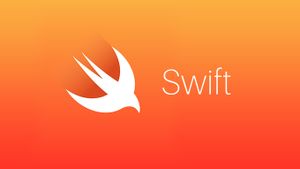Let's say you want to track x event the user do at x time/date, for instance track when certain api was updated. For that you create a variable:
// Stores the last time the API was updated, it will be updated once a week
@AppStorage("coingekoWhiteListApiLastUpdated") var coingekoWhiteListApiLastUpdated: Date = Date()Now on your function you can check like this:
let isSameWeek = coingekoWhiteListApiLastUpdated.isInThisWeek
// If the weeks are different then update API
if(!isSameWeek) {
await updateCoingekoApi()
}The function to check this would look like this:
// Checks if Dates are the same or different
extension Date {
func isEqual(to date: Date, toGranularity component: Calendar.Component, in calendar: Calendar = .current) -> Bool {
calendar.isDate(self, equalTo: date, toGranularity: component)
}
func isInSameYear(as date: Date) -> Bool { isEqual(to: date, toGranularity: .year) }
func isInSameMonth(as date: Date) -> Bool { isEqual(to: date, toGranularity: .month) }
func isInSameWeek(as date: Date) -> Bool { isEqual(to: date, toGranularity: .weekOfYear) }
func isInSameDay(as date: Date) -> Bool { Calendar.current.isDate(self, inSameDayAs: date) }
var isInThisYear: Bool { isInSameYear(as: Date()) }
var isInThisMonth: Bool { isInSameMonth(as: Date()) }
var isInThisWeek: Bool { isInSameWeek(as: Date()) }
var isInYesterday: Bool { Calendar.current.isDateInYesterday(self) }
var isInToday: Bool { Calendar.current.isDateInToday(self) }
var isInTomorrow: Bool { Calendar.current.isDateInTomorrow(self) }
var isInTheFuture: Bool { self > Date() }
var isInThePast: Bool { self < Date() }
}You can also do some common operations such as:
let now = Date()
let soon = Date().addingTimeInterval(5000) // addingTimeInterval is in seconds
now == soon
now != soon
now < soon
now > soon

